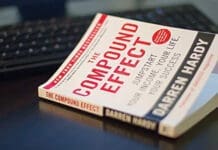By Stephenie Craig, Journey Bravely

Remember a time someone else’s behavior really got under your skin. Maybe your partner’s emotional reaction stirred you up. Perhaps your child’s behavior or attitude upset you.
A friend may have responded to you in a way that felt unsupportive. A stranger may have been unkind for seemingly no reason. Think about how you felt in that moment and how you instinctually wanted to respond or did respond. Did you call them out for their behavior? Did you withdraw and become silent and emotionally disengaged? Did you have big emotions and freeze and try to pretend everything was okay without engaging in a conversation?
We all have emotional triggers that cause our nervous system to move into emergency mode. Our brain is prepared to engage in one of four behaviors to protect us when it determines we might be physically or emotionally unsafe including fight, flight, freeze or fawn. The fight instinct tells you to move toward danger and confront. The flight instinct tells you to physically flee the situation. The freeze instinct tells you doing and saying nothing will keep you safe. The fawn instinct tells you to move toward danger and appease or placate the threat to find safety. When you are in emergency mode, your rational thinking goes off line and becomes unavailable to you. Your brain’s primary concern is survival and safety.
When someone’s behavior triggers an emergency response, you are likely to respond to the other person from a place of self-defensiveness, judgement, shame, blame, avoidance, fear or attack. These emergency driven responses lead to disconnection and eventual escalation in relationship problems. If you stay prolonged in emergency mode, you will begin to make up negative stories in your head about others that will make it difficult to repair and rebuild trust. The negative stories begin to feel true and you see yourself as a victim and others as villains. Your brain searches for negative examples to reinforce the negative story and begins filtering out the positive. And, before you know it, the relationship as a whole has become negative in your mind.
Both you and others will inevitably have big feelings and emotional triggers. Often, people are responding to one another’s big feelings and triggers more than to the heart of the person.
When triggered, most people respond better to compassion and connection than they do to shame and judgement. So, if you don’t want your relationships to feel negative and you want to respond to others on a compassionate, heart level, what can you do?
7 Ways to Navigate Your Emotional Triggers
- Notice your brain moved into emergency mode. Notice body changes like tension, stomach and chest sensations, jaw grinding, heart rate increase. Notice changes in thoughts focused on fear, anger, self-defense, and blame. Notice thoughts related to gathering negative evidence.
- Take steps to regulate your nervous system. Try taking deep breaths, taking a restroom break, stepping outside for fresh air, take off your shoes and feel the floor/ground, eat sour candy or a strong mint, splash cold water on hands or face.
- When calmer, check the negative story in your head. Remind yourself the other person is a whole person with strengths, weaknesses, and big feelings too.
- Release judgement to embrace curiosity. Instead of, “You’re being so rude and I didn’t do anything to deserve it.” try, “You seem overwhelmed. What’s happening for you right now? How can I support you.” Or try saying, “Are you okay?” “What do you need right now?
- Move toward with compassion instead of withdrawing in punishment. Sit near quietly and take deep breaths. Ask the person if a hug would be helpful. Try validating their emotional experience instead of shaming it. “That does seem overwhelming. I can see why you’re feeling emotional right now.”
- Let go of winning and pursue connection. “I’m here with you while you have big feelings. I want to be supportive. I’m also working hard to manage my feelings about your big feelings so I can be here for you.”
When both parties are calm, try talking about the big feelings that happened and what you can each do to support one another when big feelings happen.
These strategies are not meant for relationships with emotionally or physically abusive dynamics. In those cases, distance is more appropriate. Next time you are feeling triggered by someone’s behavior or big feelings, try something new and notice how it shifts the interaction. Connect with us for counseling or coaching along your journey at Journeybravely.com.






























































